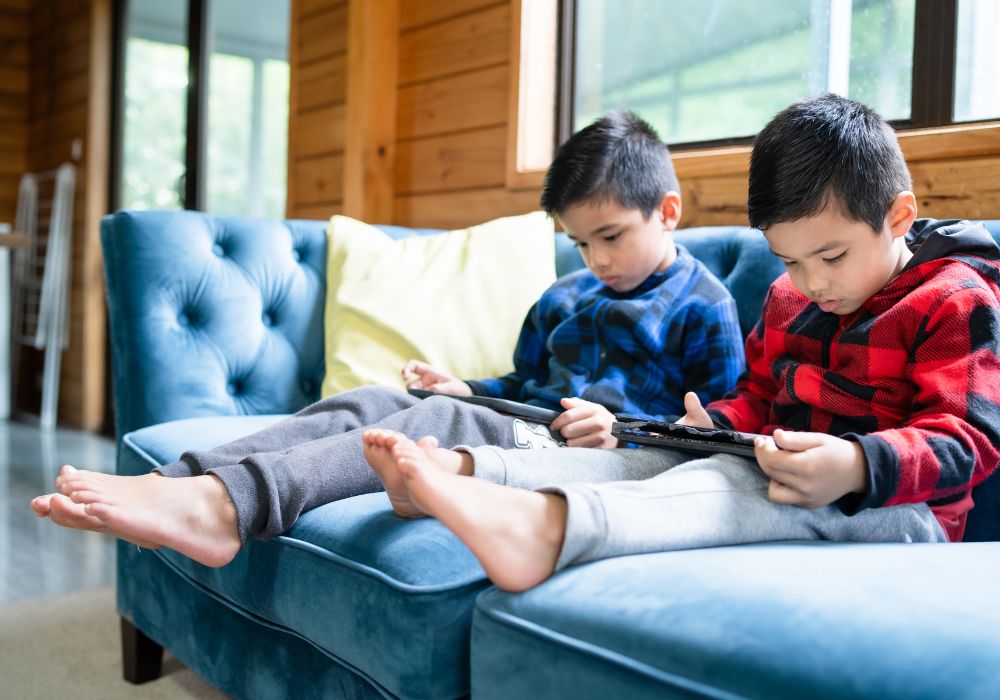Screens have become our lifeline these days, from keeping track of our daily appointments to informing us of the weather to sharing the news. They also keep us connected to people we love and give us entertainment and connection through social media platforms.
Yet many of us understand – even without research – that the impact of smartphones on our mental health is not good. More than half of Americans readily admit that they are addicted to their phones. A recent survey found that Americans spend 4 hours and 25 minutes on their phones each day. The survey projected that we will each spend the equivalent of two months on our phones in 2023.
While more research is needed on the impact of our ever advancing technology on brains and health, the research we do have shares some caution when it comes to use of our phones. Here’s what we know about how screen time impacts our mental health.
Children ages 8-12 in the United States spend 4-6 hours a day watching or using screens, and teens spend up to 9 hours. Yet young people may be the most vulnerable to the impact of technology on our mental health.
Youth who had high usage of screen time had more difficulty regulating their emotions, making friends, and were less likely to finish tasks, according to research in the National Library of Medicine.
Another study published in the Journal of Behavioral Addictions looked at 9 and 10 year olds’ use of digital technology. The researchers found that those who used technology more were more likely to have challenges like depression and anxiety two years later, which was mediated by changes in brain development.
Of course, it can be very challenging for parents to restrict social media and screen time for youth altogether. The pressures that come from other peers and the socializing that happens over social media platforms can make youth feel left out if they have absolutely no access.
The American Academy of Child and Adolescent Psychiatry shares guidelines to help parents navigate some of these decisions. They recommend understanding parental controls when it comes to their kids’ technology, encouraging activities that limit a child’s screen time, and developing healthy habits for using digital technology.
Screen time affects adults’ moods, too, sometimes for the worse, and sometimes for the better. A Healthline article points out that while some research connects increased screen time amongst adults to depression, other research found that adults who used social media to connect with friends were less likely to experience psychosocial distress.
Even if we’re not using our phones, being near them can cause our brains to function less properly, according to a study from The University of Chicago Press Journals. This study had two groups of adults complete a task. While one group had their phones sitting near them, the other groups’ had their phones completely removed. The adults who had their phones sitting near them (even though they weren’t touching them) performed more poorly on the task than the adults who didn’t have their phones near them at all.
Removing screens before bedtime is also critical to helping us sleep better, as blue light that emits from TVs, phones, and tablets tricks our brain into thinking it’s daytime. Better sleep is critical to our mental health.
Taking a break from our phones daily, especially by putting them in a separate room, may have great mental health benefits for us all.
Questions about health insurance? Contact a Sea Mountain Insurance Specialist today!
